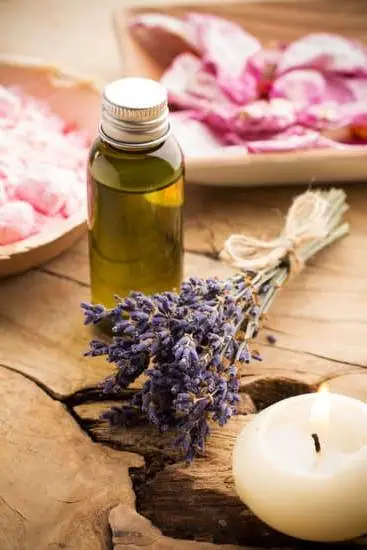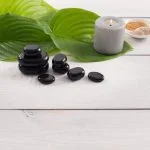Lemongrass oil is a popular essential oil that has been used in aromatherapy for centuries. Derived from the lemongrass plant, this oil is known for its fresh, citrusy scent and numerous therapeutic properties. In this article, we will explore the various uses of lemongrass oil in aromatherapy, as well as its history, benefits, and precautions for use.
Aromatherapy is a holistic healing treatment that uses natural plant extracts to promote health and well-being. The practice dates back thousands of years and has been used by various cultures around the world. In recent years, aromatherapy has gained popularity for its potential to alleviate stress, improve sleep quality, and reduce anxiety.
When it comes to lemongrass oil specifically, it is valued for its ability to uplift the mood and enhance mental clarity. In addition to its aromatic qualities, lemongrass oil also offers a range of physical benefits when used in aromatherapy. From promoting relaxation to reducing inflammation, this essential oil has many potential applications in holistic wellness practices.
Throughout this article, we will delve into the rich history of aromatherapy and explore how lemongrass oil can be incorporated into your daily routine for both mental and physical benefits. Whether you are new to aromatherapy or an experienced practitioner looking to expand your knowledge, there is much to be learned about the uses of lemongrass oil in holistic wellness practices.
The History of Aromatherapy
Aromatherapy, the use of essential oils for therapeutic purposes, has been around for thousands of years and is deeply rooted in the history of many cultures. The use of aromatic plants and their extracts can be traced back to ancient civilizations in Egypt, China, India, Greece, and Rome. These ancient cultures recognized the healing properties of botanicals and utilized them for various medical and religious rituals.
Early Beginnings
The roots of aromatherapy can be found in the practices of early civilizations. In ancient Egypt, aromatic oils were used in religious ceremonies, as well as in embalming practices. The Greeks and Romans also used aromatic oils for medicinal purposes and personal hygiene. In India, the traditional system of medicine known as Ayurveda incorporates the use of essential oils to balance the mind, body, and spirit.
Modern Aromatherapy
The term “aromatherapy” was coined by French chemist René-Maurice Gattefossé in 1937. After an accidental burn injury, Gattefossé discovered the healing properties of lavender oil when it helped to heal his wounds without leaving any scars. This led him to further research on the benefits of essential oils, ultimately leading to the development of modern aromatherapy techniques.
The Rise in Popularity
In recent decades, aromatherapy has gained widespread popularity as a holistic wellness practice. Essential oils are now widely used for their therapeutic effects on both the body and mind. Aromatherapists and practitioners have developed various methods for diffusing essential oils and applying them topically to promote relaxation, improve mood, alleviate stress, and enhance overall well-being. As more people seek natural alternatives to traditional medicine, the interest in aromatherapy continues to grow.
Benefits of Aromatherapy
Aromatherapy is known to provide a wide range of benefits for both the mind and body. Through the use of essential oils, aromatherapy can promote relaxation, improve mood, and alleviate symptoms of certain ailments. When it comes to the specific use of lemongrass oil in aromatherapy, there are several potential benefits that have been attributed to this refreshing and citrus-scented oil.
Stress Relief
One of the most well-known benefits of using lemongrass oil in aromatherapy is its ability to promote relaxation and reduce stress. The invigorating scent of lemongrass has been shown to help calm the mind and reduce feelings of anxiety. Inhaling the aroma of lemongrass oil can have a calming effect on the nervous system, making it an ideal choice for those seeking natural methods to manage stress.
Improved Mood
In addition to its stress-relieving properties, lemongrass oil has also been linked to improved mood and increased feelings of positivity. The vibrant and uplifting fragrance of lemongrass can help combat feelings of sadness or low energy, making it a popular choice for aromatherapy enthusiasts looking for a mood booster.
Physical Benefits
Aside from its mental and emotional benefits, lemongrass oil is also believed to have physical advantages when used in aromatherapy. Some proponents claim that it may help with digestive issues, muscle pain, and even fevers when diffused or applied topically with a carrier oil. However, it’s important to note that more research is needed to fully understand the extent of these potential benefits.
What Is Aromatherapy Using Lemongrass Oil
Aromatherapy is a holistic healing treatment that uses natural plant extracts to promote health and well-being. It aims to enhance physical, emotional, and spiritual health through the inhalation and topical application of essential oils. Lemongrass oil, derived from the lemongrass plant, is one such essential oil used in aromatherapy for its wide range of therapeutic benefits.
The use of aromatherapy dates back thousands of years to ancient civilizations in Egypt, China, and India. It has been traditionally used for religious ceremonies, rituals, and medicinal purposes. Aromatherapy gained popularity in the Western world in the 20th century as people began to explore alternative and complementary therapies for overall wellness.
Lemongrass oil is renowned for its refreshing citrus scent with earthy undertones. In aromatherapy, it is commonly used to alleviate stress, anxiety, and depression due to its calming properties. Additionally, lemongrass oil is known for its antiseptic and anti-inflammatory qualities, making it beneficial for treating skin conditions such as acne or eczema when used topically in aromatherapy practices.
The Uses of Lemongrass Oil in Aromatherapy
Lemongrass oil has been utilized for various purposes due to its refreshing and citrusy aroma. In aromatherapy, lemongrass oil is widely used for its therapeutic properties that can help alleviate stress, anxiety, and even certain physical ailments. The uses of lemongrass oil in aromatherapy are extensive and varied, making it a popular choice among essential oils for holistic healing.
One of the main uses of lemongrass oil in aromatherapy is as a natural stress reliever. The calming and soothing scent of lemongrass oil can help promote relaxation and reduce feelings of anxiety. Additionally, its invigorating fragrance can also act as a mood booster, making it an ideal option for those looking to uplift their spirits during times of emotional distress.
Furthermore, lemongrass oil is also known for its antifungal and antibacterial properties, making it a valuable addition to aromatherapy practices aimed at improving overall well-being. When used in aromatherapy, lemongrass oil can help purify the air while promoting a sense of cleanliness and freshness. Its antimicrobial properties may also aid in boosting the immune system, making it a versatile option for maintaining health and vitality.
Lastly, lemongrass oil is often used in aromatherapy as a natural insect repellent due to its strong scent that deters mosquitoes and other insects. This makes it an effective and safer alternative to commercial insect repellents that may contain harmful chemicals.
| Benefits | Description |
|---|---|
| Stress relief | The calming scent can help promote relaxation and reduce anxiety |
| Antimicrobial properties | Lemongrass oil aids in purifying the air and boosting the immune system |
| Insect repellent | Its strong scent deters mosquitoes and other insects naturally |
How to Use Lemongrass Oil in Aromatherapy
Lemongrass oil is a popular choice in aromatherapy due to its refreshing and rejuvenating properties. It is derived from the leaves and stalks of the lemongrass plant, which is native to tropical regions such as Southeast Asia and Africa. This essential oil has been used for centuries in traditional medicine and skincare routines. When used in aromatherapy, lemongrass oil can promote a sense of balance and relaxation, making it a valuable addition to any wellness routine.
There are several ways to use lemongrass oil in aromatherapy. One common method is through inhalation, where a few drops of the oil are added to a diffuser or humidifier to fill the room with its invigorating scent.
Another popular technique is to apply diluted lemongrass oil topically, either through massage or by adding it to bathwater for a soothing soak. Additionally, lemongrass oil can be blended with other essential oils such as lavender or peppermint to create unique fragrances that cater to individual preferences.
When using lemongrass oil in aromatherapy, it is important to practice caution and adhere to safety guidelines. As with all essential oils, lemongrass oil should be diluted before applying it directly on the skin to prevent irritation or allergic reactions.
It is also advisable to perform a patch test before using lemongrass oil for the first time, especially for those with sensitive skin. Pregnant women and individuals with existing health conditions should consult with a healthcare professional before incorporating lemongrass oil into their aromatherapy practices.
| Method of Use | Key Considerations |
|---|---|
| Inhalation (using a diffuser or humidifier) | Ensure proper ventilation; do not use undiluted oil |
| Topical application (massage or bath) | Dilute with carrier oil; perform patch test if applicable |
| Blending with other essential oils | Experiment with different combinations; always dilute properly |
Recipes for Aromatherapy Using Lemongrass Oil
Aromatherapy using Lemongrass Oil can be done in several ways to create a relaxing and rejuvenating atmosphere. Here are some simple and effective recipes for utilizing Lemongrass Oil in aromatherapy:
- Lemongrass Oil Diffuser Blend
- Lemongrass Oil Massage Blend
- Lemongrass Oil Room Spray
Create a refreshing and invigorating atmosphere by blending Lemongrass Oil with other essential oils like Peppermint, Eucalyptus, and Lavender. Simply mix a few drops of each oil in your diffuser with water and enjoy the uplifting scent.
For a soothing massage experience, mix Lemongrass Oil with a carrier oil such as Coconut or Sweet Almond oil. The anti-inflammatory and analgesic properties of Lemongrass Oil make it an excellent choice for relieving muscle pain and tension.
Create your own all-natural room spray by combining Lemongrass Oil with distilled water in a spray bottle. Use this aromatic spray to freshen up any room or space, leaving behind a clean and uplifting scent.
These recipes are just a few examples of how Lemongrass Oil can be utilized in aromatherapy to promote relaxation and well-being. Whether it’s through diffusion, massage, or creating custom blends, the versatility of Lemongrass Oil makes it a popular choice for aromatherapy enthusiasts.
It’s important to note that when using essential oils for aromatherapy, including Lemongrass Oil, it’s essential to follow safety precautions. Always perform a patch test before applying directly to the skin, dilute properly with carrier oils, and seek guidance from a qualified aromatherapist if you have any medical conditions or concerns. With proper use and care, aromatherapy using Lemongrass Oil can provide numerous benefits for both the body and mind.
Precautions and Considerations for Using Lemongrass Oil in Aromatherapy
Lemongrass oil is a popular essential oil used in aromatherapy for its refreshing and invigorating scent, as well as its potential health benefits. However, it is important to take precautions and consider certain factors when using lemongrass oil in aromatherapy to ensure safety and effectiveness. Here are some important precautions and considerations to keep in mind:
- Dilution: Lemongrass oil is potent and should be diluted before use to avoid skin irritation or sensitization. It is recommended to mix it with a carrier oil such as coconut oil, sweet almond oil, or jojoba oil before applying to the skin.
- Sensitivity: Individuals with sensitive skin or allergies should perform a patch test before using lemongrass oil topically. Apply a small amount of diluted oil to a small area of skin and monitor for any adverse reactions such as redness, itching, or inflammation.
- Phototoxicity: Lemongrass oil contains compounds that may cause phototoxic reactions when exposed to sunlight. Therefore, it is advisable to avoid direct sunlight or UV exposure for at least 12 hours after applying lemongrass oil topically.
In addition to these precautions, it is important to consider the source and quality of lemongrass oil when using it in aromatherapy. It is recommended to purchase lemongrass oil from reputable suppliers who offer pure, organic, and therapeutic-grade essential oils.
It’s also crucial to consult with a qualified aromatherapist or healthcare professional before using lemongrass oil in aromatherapy, especially for pregnant women, nursing mothers, individuals with underlying health conditions, or those taking medications. By taking these precautions and considerations into account, individuals can safely enjoy the benefits of lemongrass oil in their aromatherapy practice while minimizing the risk of potential adverse effects.
Conclusion and Final Thoughts on Lemongrass Oil in Aromatherapy
In conclusion, lemongrass oil has been used in aromatherapy for centuries and continues to be a popular choice for its numerous benefits. Aromatherapy, as a practice, has a rich history and has been shown to have a positive impact on both physical and mental well-being. When it comes to using lemongrass oil specifically, there are many ways it can be incorporated into aromatherapy to promote relaxation, reduce stress, and improve mood.
The uses of lemongrass oil in aromatherapy are wide-ranging, from diffusing the oil to create a calming atmosphere, to adding it to massage oils or baths for a rejuvenating experience. Its citrusy scent and potential health benefits make it a versatile option for those looking to enhance their overall wellness through natural means. However, it is important to consider precautions when using this essential oil, especially for individuals with sensitive skin or certain medical conditions.
In summary, the use of lemongrass oil in aromatherapy should be approached with care and consideration. Whether seeking relief from anxiety or simply looking to create a more pleasant environment at home, incorporating lemongrass oil into your aromatherapy routine can be a fragrant and beneficial option. As with any alternative therapy, it is recommended to consult with a healthcare professional before starting any new regimen involving essential oils.

Are you looking for a natural way to improve your health and wellbeing?
If so, aromatherapy may be the answer for you.





